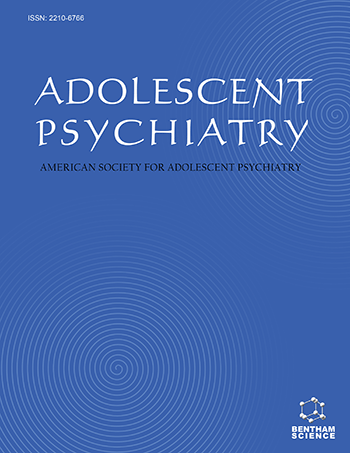Abstract
Objectives: The recent essay by Ethan Watters (2010) in the New York Times on the Americanization of mental illness with greater globalization raises many important assertions and concerns about the dissemination of Western models of mental illness throughout the world. At the same time, a there has been parallel trend towards the adoption of Western models of family structure and child rearing.
Methods: The authors review these parallel trends and reference some studies that support their inter-connection and their potential adverse consequences on the psychosocial risk factors faced by youth. They also briefly review cases that illustrate these risks. At the same time, it also presents the counterpoint that globalization may have positive aspects in crossnational collaboration and learning in addressing the mental health of youth and families. They briefly review the content of this Special Issue as examples of the benefits from such learning and cross-pollination, tempered with the necessary adaptation of such lessons to differing cultural contexts and needs. Conclusion: Increased understanding of these trends as well as inter-national and cross-cultural collaboration will allow us to more effectively serve American youth and families as well as youth and families in diverse cultures and nations.Keywords: Global, psychiatry, youth, culture
Adolescent Psychiatry
Title:Editorial: Globalization and Child and Adolescent Mental Health
Volume: 3 Issue: 1
Author(s): Andres J. Pumariega and Consuelo Cagande
Affiliation:
Keywords: Global, psychiatry, youth, culture
Abstract: Objectives: The recent essay by Ethan Watters (2010) in the New York Times on the Americanization of mental illness with greater globalization raises many important assertions and concerns about the dissemination of Western models of mental illness throughout the world. At the same time, a there has been parallel trend towards the adoption of Western models of family structure and child rearing.
Methods: The authors review these parallel trends and reference some studies that support their inter-connection and their potential adverse consequences on the psychosocial risk factors faced by youth. They also briefly review cases that illustrate these risks. At the same time, it also presents the counterpoint that globalization may have positive aspects in crossnational collaboration and learning in addressing the mental health of youth and families. They briefly review the content of this Special Issue as examples of the benefits from such learning and cross-pollination, tempered with the necessary adaptation of such lessons to differing cultural contexts and needs. Conclusion: Increased understanding of these trends as well as inter-national and cross-cultural collaboration will allow us to more effectively serve American youth and families as well as youth and families in diverse cultures and nations.Export Options
About this article
Cite this article as:
J. Pumariega Andres and Cagande Consuelo, Editorial: Globalization and Child and Adolescent Mental Health, Adolescent Psychiatry 2013; 3 (1) . https://dx.doi.org/10.2174/2210676611303010001
| DOI https://dx.doi.org/10.2174/2210676611303010001 |
Print ISSN 2210-6766 |
| Publisher Name Bentham Science Publisher |
Online ISSN 2210-6774 |
 33
33
- Author Guidelines
- Graphical Abstracts
- Fabricating and Stating False Information
- Research Misconduct
- Post Publication Discussions and Corrections
- Publishing Ethics and Rectitude
- Increase Visibility of Your Article
- Archiving Policies
- Peer Review Workflow
- Order Your Article Before Print
- Promote Your Article
- Manuscript Transfer Facility
- Editorial Policies
- Allegations from Whistleblowers
Related Articles
-
Editorial: Forty Five Years and Counting
Adolescent Psychiatry Childhood Psychiatric Disorders in North-India: Prevalence, Incidence and Implications#
Adolescent Psychiatry Borderline features in Youth with Bipolar Spectrum Disorders
Adolescent Psychiatry Destruction as a Means of Survival: The Paradigm of Modern Psychopathology
Adolescent Psychiatry In the First Person: A Window into the Experience of Early Psychosis and Recovery
Adolescent Psychiatry Adolescent Suicide and Suicide Prevention Programs: A Comparison Between Lithuania and Flanders
Adolescent Psychiatry Altering Outcomes in Juvenile Offending: The Evidence Base
Adolescent Psychiatry Stigmatising Attitudes Towards Depression and Alcohol Misuse in Young People: Relationships with Help-Seeking Intentions and Behavior
Adolescent Psychiatry Thriving, Managing, and Struggling: A Mixed Methods Study of Adolescent African Refugees’ Psychosocial Adjustment
Adolescent Psychiatry Adolescent Peer Victimization and PTSD Risk
Adolescent Psychiatry Mental Health, Risk Factors and Access to Care for Primary School Children in the Island of Mauritius
Adolescent Psychiatry Editorial (Adolescence—plus ca change, plus c' est la meme chose?)
Adolescent Psychiatry Cannabis and Cognitive Systems in Adolescents
Adolescent Psychiatry Adolescent Depression Screening: Not So Fast
Adolescent Psychiatry Summaries of Selected Presentations from the 2012 Annual Meeting of the American Society for Adolescent Psychiatry
Adolescent Psychiatry Is Knowledge Enough? The Relationship Between Mental Health Knowledge and Stigmatising Attitudes Among Australian Adolescents
Adolescent Psychiatry The Rise of a Hostile Adolescent Population: The Syrian Refugee Problem
Adolescent Psychiatry Depression in Adolescent Suicide Attempters: A Cross-Sectional Comparative Study
Adolescent Psychiatry Body Dysmorphic Disorder in Adolescents
Adolescent Psychiatry WORKSHOPS
Adolescent Psychiatry

























